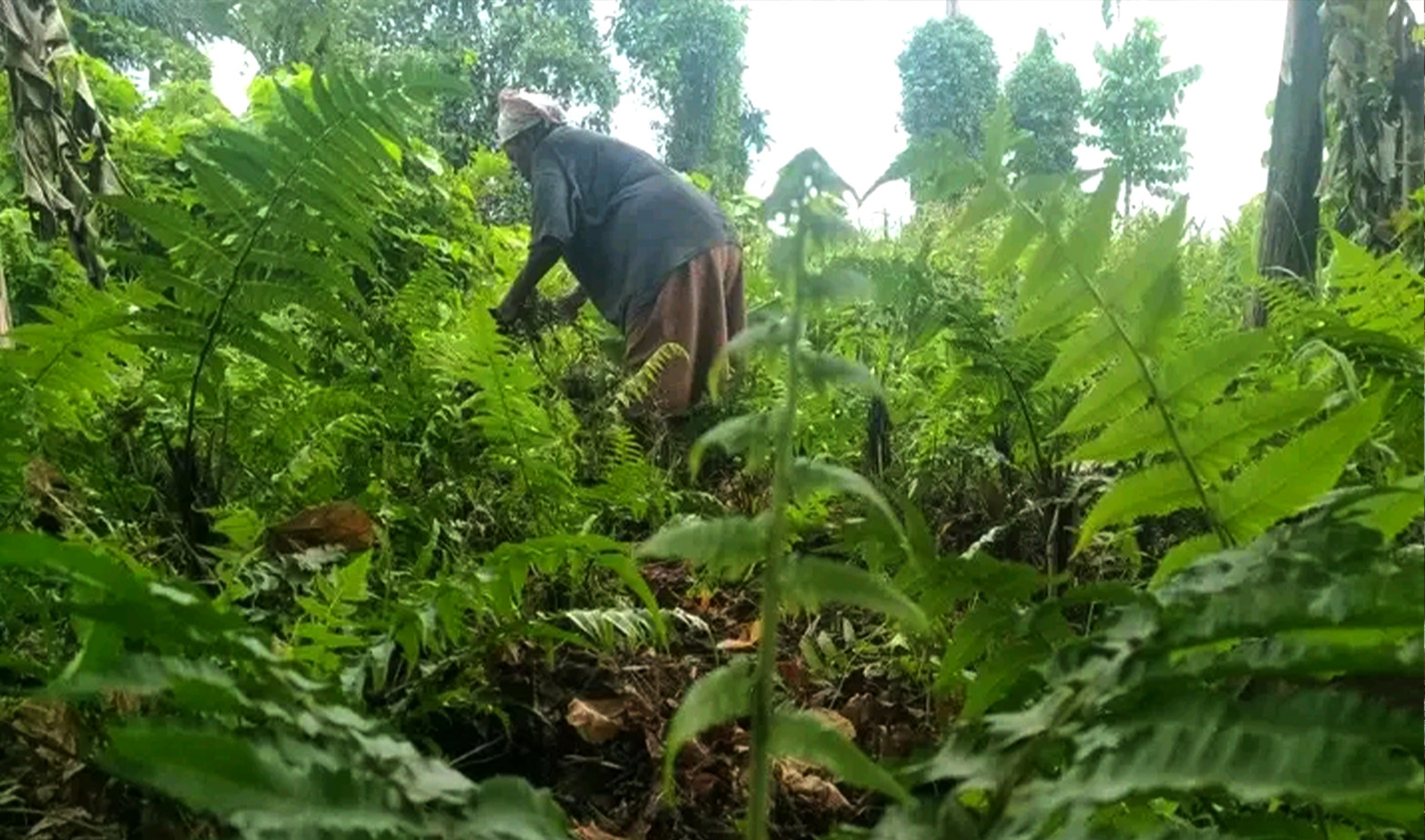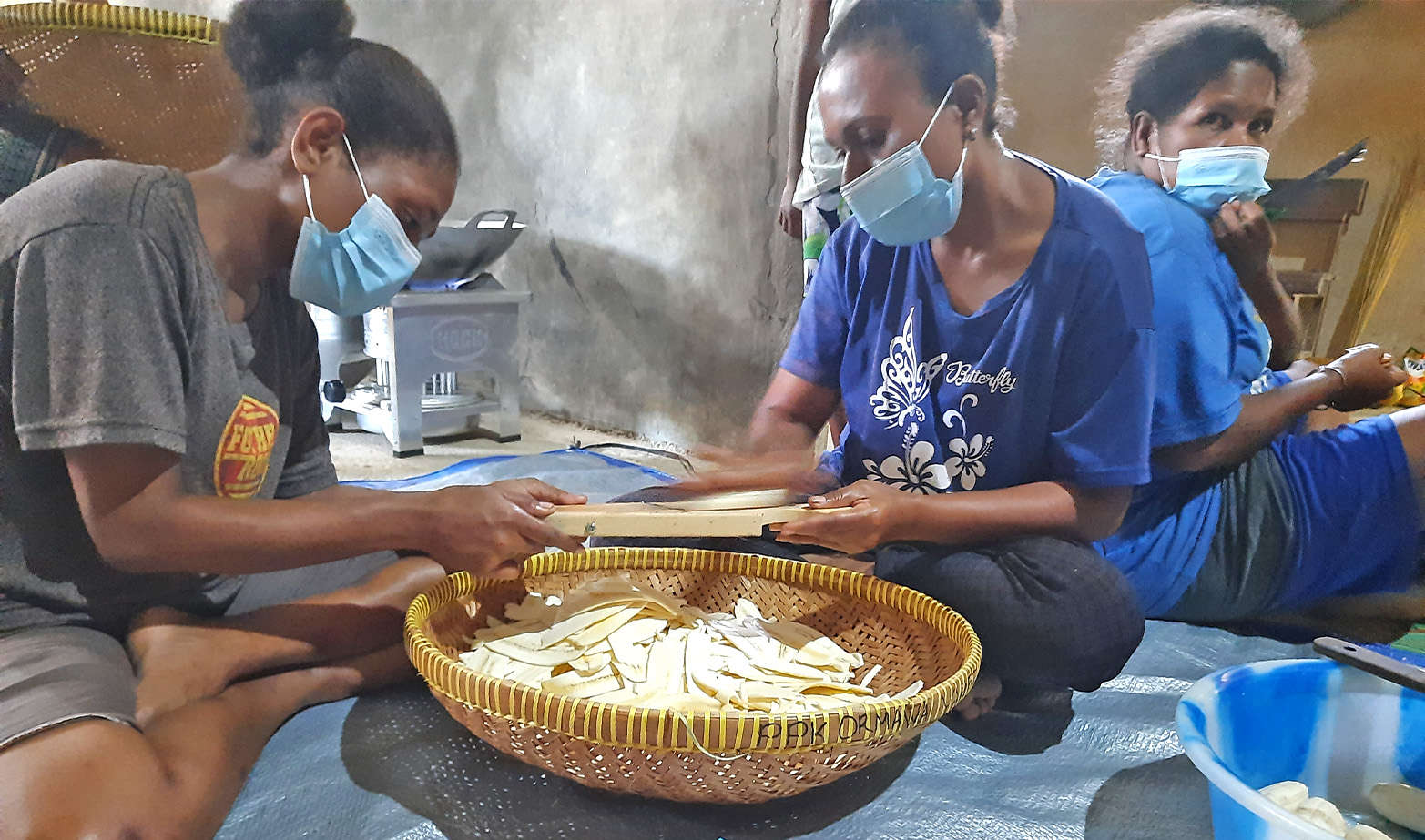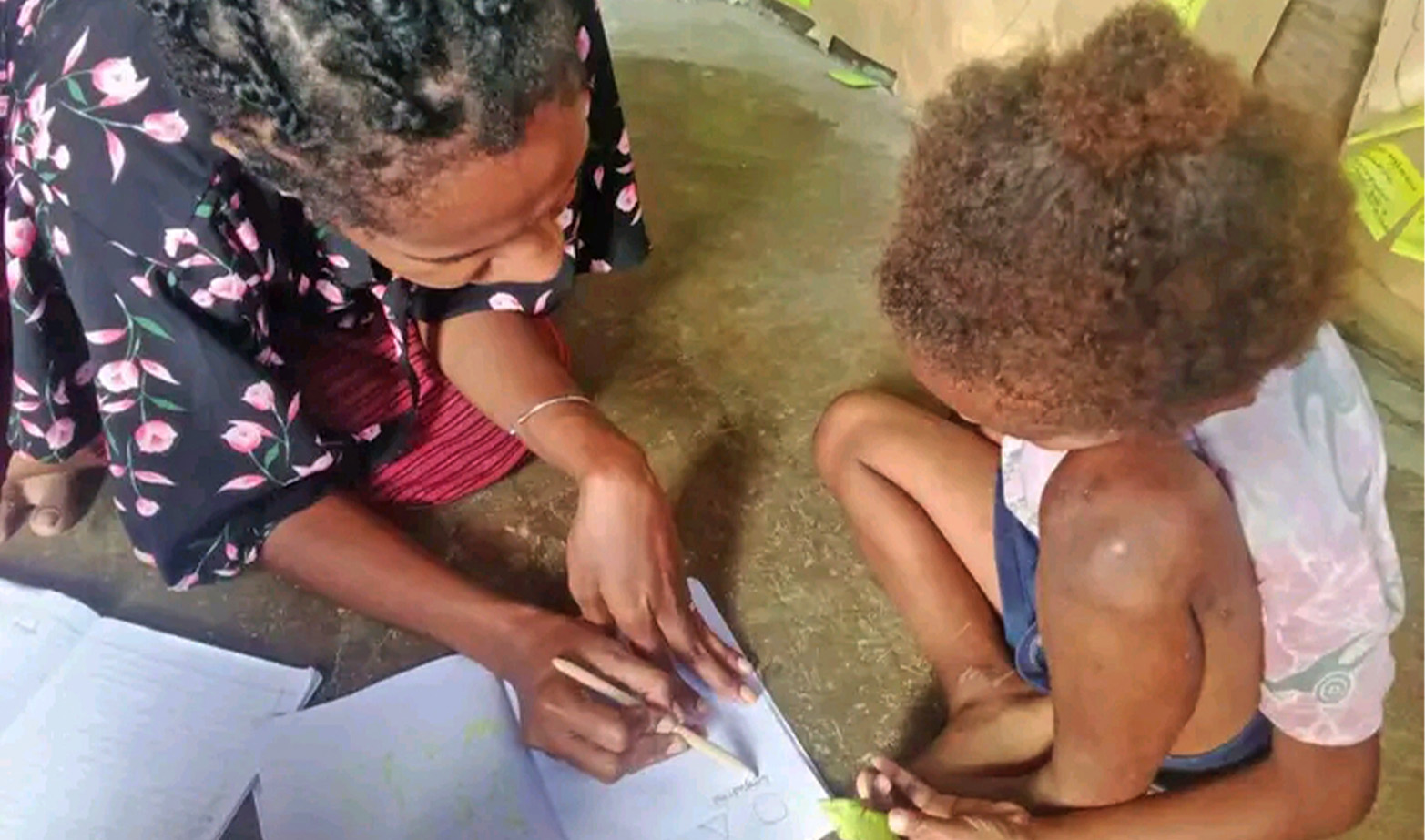
Indigenous women play a crucial role in utilizing natural resources. (Devy Debora Sentuf)
- admin
- 08 April 2025
- Feature
The Indigenous Peoples Bill to Strengthen Indigenous Women’s Fight Against Discrimination
For years, indigenous women have been managing households, cultivating resources, and contributing to the economy. They play a crucial role in serving the needs of their families. As mothers, they also care for and raise their children. They also protect the environment from which they take water, food, medicine and other materials. However, the significant roles and responsibilities they bear are not matched by equal protection of their rights and their access to resources. Indigenous women continue to face discrimination, particularly from companies operating in their ancestral territories.
Currently, indigenous women in Sorong, Southwest Papua are confronted with significant challenges. Companies have entered the forests with heavy machinery, making it difficult for them to manage their natural resources.
Devy Debora Sentuf, a representative of the Sorong indigenous community, shared this sad news during the Indigenous Women Human Rights Defenders discussion on March 10, 2025, organized by the Coalition to Guard the Indigenous Peoples Bill or Koalisi Kawal RUU Masyarakat Adat in commemoration of the International Women's Day. She stated, "Women have difficulty in collecting crops because access to the area has been restricted by the company. The women can only cultivate the small land next to their homes and gather garden produce."
The operations of coal mining companies in Sorong have limited women's freedom from accessing their farm lands and forest areas. Heavy equipment prevents the residents from harvesting their usual crops such as bananas, cassava, taro, peanuts and other vegetables they sell at the market. In effect, this has lessened their cash income sources. This situation is compounded by a lack of government assistance for indigenous women’s livelihoods.
Despite these difficulties, indigenous women are undeterred. They persist in asserting their rights to their livelihoods through Awal Tantangan Aksi Produktif Papua (ATAP Papua) or the Papua Productive Action Challenge. It is a community organization focusing on education, social issues, and culture since its establishment on February 20, 2019.

Devy works alongside about 24 members to support fellow indigenous women in Sorong. The organization educates women about land rights, gender equality, and government policies while assisting farmer groups and promoting women farmers’ cooperative businesses.
"We help the community of mama’s (women) here manage the production of foods for sale – such as chips – from crops [keladi]. They also process sago, some of which we sell raw and some as ready-to-eat products. We teach mothers how to enhance the value of their crops and natural products to improve their livelihood,” said Devy.
They receive training on sales methods, transitioning from selling only raw materials to preparing ready-to-eat items. They are also taught how to take advantage of technology and use social media to boost their sales. As a result, their earnings from natural resources increase.

ATAP Papua also engages children in learning local culture to strengthen their identities and their understanding of local wisdom, thereby increasing their confidence as members of their community in defending their territories.
"We conduct activities with the children and help them understand their culture and heritage so they can advocate for their territory that has been taken from them," said Devy.
Educational activities include literacy programs, traditional dances, and skills development in making traditional clothing.
During the March 10 discussion, representatives of Koalisi Kawal RUU Masyarakat Adat campaigned for support for legislative approval.
"The Indigenous Peoples Bill is essential because it provides support for indigenous women to continue their efforts as human rights defenders, ensuring they are not subjected to ongoing discrimination," stated Dila from Kalyanamitra, a representative of the coalition.
Indigenous women are often overlooked in the present policies and programs. There are also cultural biases and structural barriers that hinder women from participating in community and public affairs and decision-making. Such as the case of the Sorong women, they did not have an opportunity to object to the coal mines operation even if it negatively impacts on their livelihoods.
The bill emphasizes the principles of participation, justice, and gender equality. Thus, it provides for involving women in managing natural resources and governance through indigenous community law. When passed into law, it will strengthen the women's capacity to fight for the rights of Indigenous Peoples and to protect their customary forests as vital natural resources.